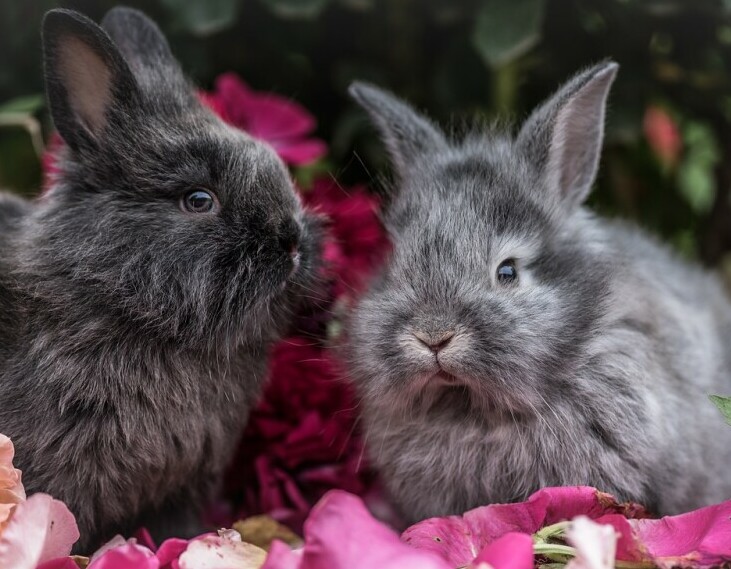Hey, it’s Bob here, and I wanted to focus on the diet and nutrition of your little Easter Bunnies! In our last conversation, we covered the overall care of these lovable creatures. But now, let’s zero in on something equally critical: their diet. You’ll soon discover that diet isn’t just one aspect of rabbit care; it’s the foundation of their health.
Think of hay as the bedrock for your bunny’s health regime. It’s not just any food – it’s the kind of sustenance that keeps their tiny engines running smoothly. I’m talking about unlimited access to high-quality grass hay, like timothy, orchard grass, or meadow hay. This isn’t just about filling their bellies; it’s also about maintaining their digestion and dental health. Hay is packed with the necessary fiber these furry pals need to thrive.
Now, you might be asking yourself, ‘Bob, how exactly do I make sure my rabbit is getting the right kind of hay?’ That’s a great question. Offer your rabbit a selection, see what they take a liking to, and then ensure it’s always available. Their digestive system is delicate, so the constant presence of hay helps avoid any hiccups. Plus, those chompers of theirs are always growing, and hay is the perfect material for natural dental floss.
I really hope that you understand the pivotal role hay plays in your rabbit’s diet. This basic step is going to smooth the way for introducing more variety into their menu, which is what we’re going to be talking about next. So, stick with me as we hop into the world of fresh vegetables and how to balance those nutritious greens with the right amount of pellets.

Balancing Your Rabbit’s Diet with Fresh Foods and Controlled Pellets
In my opinion, fresh vegetables are like the spice of life for rabbits. Just like hay, they play a critical role in your rabbit’s diet but bring a whole new level of nutrients and variety to the table. A rabbit’s menu should include a significant portion of leafy greens, such as kale, spinach, romaine lettuce, and parsley. These are not only delights to their taste buds but are also packed with the essential vitamins and minerals necessary for their health.
You can always adjust your approach down the road, but when you’re starting to introduce new veggies, remember to take it slow. This isn’t just about avoiding a picky eater; it’s also about ensuring that your bunny’s digestive system can handle the new influx of foods without any trouble. Now, what happens if your rabbit experiences digestive upset? If you’ve introduced new greens gradually, you’ll have a much easier time pinpointing the culprit.
Rabbit pellets, while convenient and often loaded with nutrients, should be treated as a supplement rather than the main course. You might wonder how much is just right. Well, a rough rule of thumb is to provide about 1/4 to 1/2 cup of high-quality pellets per 5 pounds of body weight daily. What you’re aiming for is a balance — enough pellets to provide extra nutrition without tipping the scales toward an unhealthy diet.
Ah, water – the essence of life. Your bunny needs constant access to fresh, clean water. It’s best to have both a heavy ceramic bowl and a sipper bottle at your disposal. This way, your furry friend won’t find itself waterless if it accidentally tips over the bowl.
And let’s touch on treats. Who doesn’t love a little treat now and again? Rabbits certainly do! But it’s crucial to limit these goodies, especially fruits like apples, strawberries, and blueberries. While they’re safe in moderation, their high sugar content means they should be given sparingly. Remember, the aim here is to keep your rabbit fit and healthy, not just happy in the short term.
Lastly, steer clear of processed foods — no cereals, bread, or crackers for your hopper. These are generally packed with carbs and can wreak havoc on your bunny’s delicate digestive system. It’s about choosing what resonates with your rabbit’s health needs rather than what might be convenient or seen as a treat.

Towards a Happy, Healthy Bunny: Maintenance and Monitoring Tips
A rabbit’s dietary habits need more than just the right food; they need consistent observation and wise management. That’s where you step in as a vigilant pet owner. Remember, rabbits’ teeth never stop growing, which is why chew toys should be a staple in their habitat. Offer toys made of untreated wood or cardboard; this isn’t just about dental upkeep, but also enrichment for their curious minds.
Monitoring your rabbit’s food intake is crucial. Too much food, especially pellets and treats, can lead to obesity, while too little can cause nutritional deficiencies. Adjust your rabbit’s diet based on their size, age, and activity level. Regular weight checks are a helpful way to keep track.
When you introduce new goodies into your rabbit’s diet, do so with a gentle hand. Their digestive systems are delicate. Introduce one new vegetable at a time and watch for any adverse reactions like diarrhea or bloating. If you notice any, it’s a sign to pull back and perhaps consult with a vet.
And speaking of vets, they’re your allies in ensuring your rabbit’s diet is nutritionally sound. A vet with experience in rabbit care is invaluable. They can help adapt a diet to your rabbit’s unique needs, guide you on portion sizes, and suggest alternates if your rabbit is a picky eater.
In my opinion, loving and caring for a rabbit is a rewarding journey. You’re responsible for a tiny, trusting life, and by following these maintenance and monitoring tips, you’re setting the stage for a long, happy, and healthy relationship. Always choose something that resonates with you and your lifestyle when it comes to your pet’s diet and remember, your first attempt doesn’t need to be your last. Don’t worry too much about getting everything perfect from the get-go; you can always adjust your approach down the road.
I really hope that you found these tips helpful. A well-balanced diet is the heart of good rabbit care, and now you’re well on your way to becoming an expert in bunny wellness. Thanks for taking the time to read through this guide; your furry friend’s vibrant health will be your reward. If you’ve got stories or tips of your own, I’d love to hear about them! Share your experiences, and let’s learn from each other.

This article is so in depth and very informative. Thank you for all this information and tips. Keep these articles coming as they are packed with vital information.
Thank you so much for your positive feedback! I’m thrilled to hear that you found the article informative and valuable. Providing vital information to help pet owners care for their furry friends is my passion, and comments like yours truly inspire me to keep writing. Rest assured, I’ll continue to share more articles packed with helpful tips and insights. If you have any specific topics or questions you’d like to see covered in future articles, please feel free to let me know. Thanks again for your support!